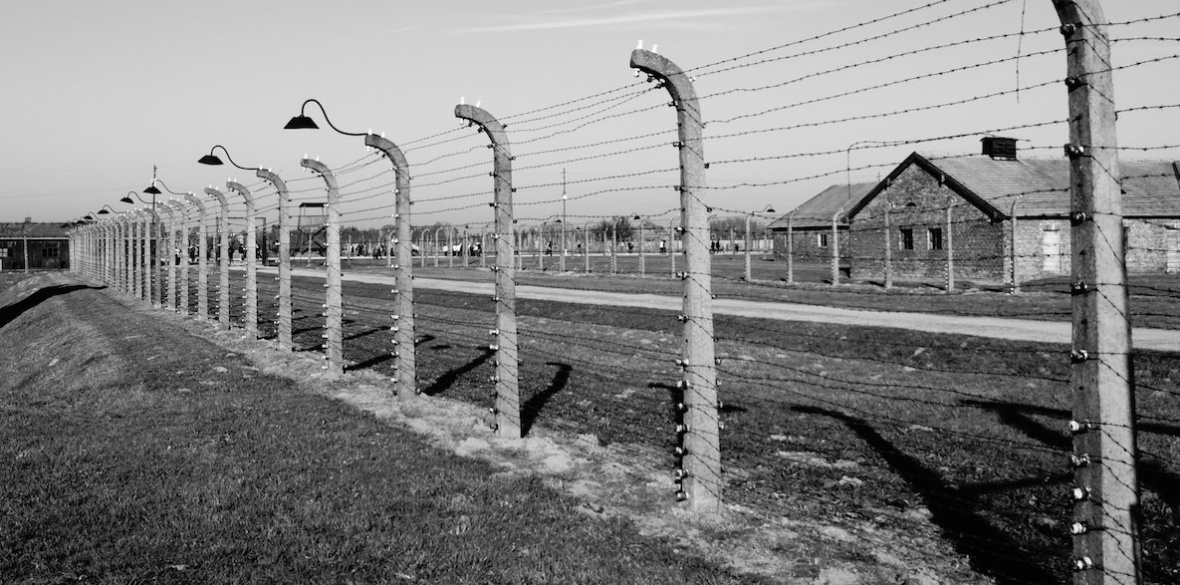THIS week, when atomic scientists moved the hands of the Doomsday Clock 10 seconds closer to midnight, they were referring to the very real threat of nuclear war.
But as we mark Holocaust Memorial Day 2023, we must recognise that with nationalism, racism and Holocaust revisionism all on the rise, there are other senses in which Europe is edging closer to midnight.
January 27 marks Holocaust Memorial Day because it was the date of the liberation of the largest of the Nazi death camps, Auschwitz, by the Soviet Red Army in 1945.
But the Holocaust started well before the Nazis decided on industrialised mass murder in gas chambers. The slaughter began as the German war machine moved east in 1941.
Tsarist anti-semitism had confined Jews to a “pale of settlement” in the west of the Russian empire, precisely the areas — including Ukraine — that would be occupied by the Wehrmacht. More than a million Ukrainian Jews were killed in the second world war, most not gassed but shot by Einsatzgruppen SS paramilitary death squads that followed the German soldiers.
Ukraine is a battlefield again and accusations of fascist barbarism fly thick and fast.
For Western pundits like Simon Tisdall or Timothy Garton-Ash, Vladimir Putin is a fascist menace who, like Hitler, must be fought to the finish rather than appeased.
Western war propaganda has tended to portray every passing adversary as Hitler — any reluctance to wage war against Slobodan Milosevic, Saddam Hussein or Colonel Gadaffi was derided as an echo of Munich — but the stakes when it comes to Russia, the world’s largest country and possessor of its largest stock of nuclear weapons, are immeasurably higher.
Moscow for its part accuses Ukraine of being a fascist state, pointing to the openly neonazi ideology of units like the Azov Battalion, at the demolition of monuments to the victorious Red Army and the state glorification of Nazi collaborators the Ukrainian Insurgent Army (UPA) and Stepan Bandera.
It is true that the post-Maidan regime in Ukraine has sought to rewrite the history of the second world war, from post-coup prime minister Arseniy Yatsenyuk’s 2015 claim that “the Soviet Union invaded Ukraine and Germany” to the law defining the UPA as “independence fighters” and making questioning the “legitimacy of their actions” — which included the murder of 100,000 Jews and Poles — a criminal offence.
But it isn’t the only one. Drawing the battle lines against Russia involves sanitising far-right regimes across Europe.
Poland’s pressure on Berlin to supply tanks to Ukraine sees it rehabilitated as a state of the democratic “front line” — as, distressingly, did its standoff with Belarus over refugees last winter, when it protected “European democracy” by forcing freezing asylum-seekers back across a barbed-wire border in the forest.
Warsaw’s attacks on women’s rights, its alliance with openly anti-semitic nationalists and its ban on historians referring to Polish complicity in the Holocaust lie forgotten.
Italy’s prime minister comes from a group directly descended from Mussolini’s Fascist Party — yet again, liberals are happy to ignore this.
The Putin threat means we should not trouble ourselves that “some Italians take a lenient view of the Mussolini era,” Garton-Ash assures us.
But Europe’s march right has grim consequences for refugees drowning in the Mediterranean and black communities facing rising racist violence.
Britain is no outlier here. As Holocaust survivor Joan Salter pointed out in a courageous confrontation with Home Secretary Suella Braverman this month, the government’s language on refugees and asylum-seekers drips poison: and those urging we turn the boats away today are the heirs to those who closed the door to Jewish refugees as Hitler’s armies occupied Europe.
As we remember the millions of Jews and Roma murdered by the Nazis, the words “never again” could barely be more poignant. The fight against fascism is not ancient history. It is our urgent task today.











